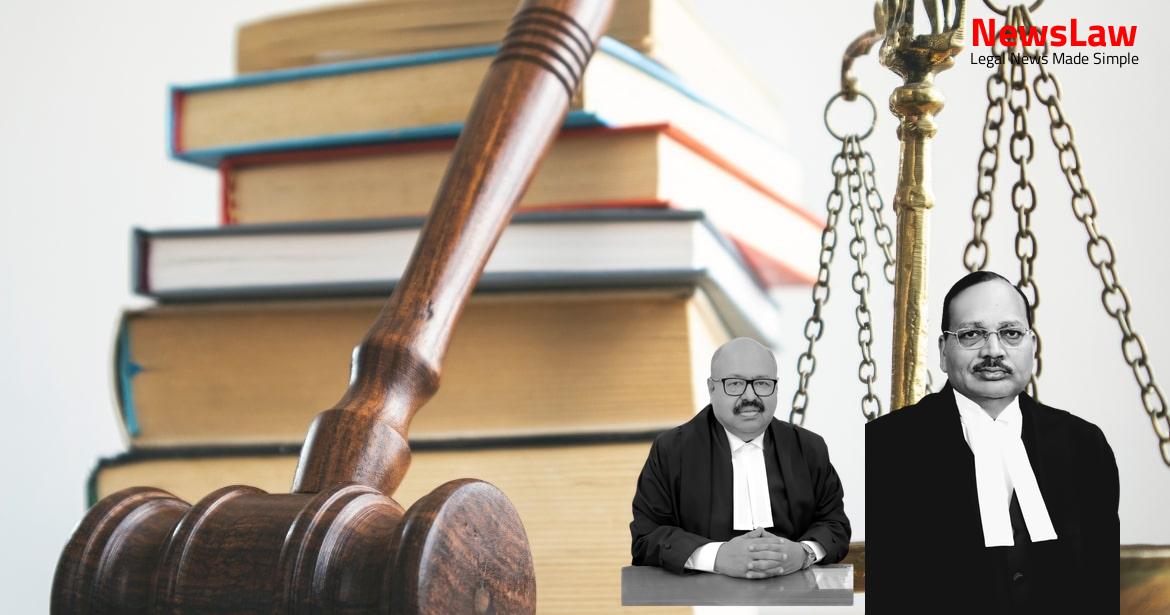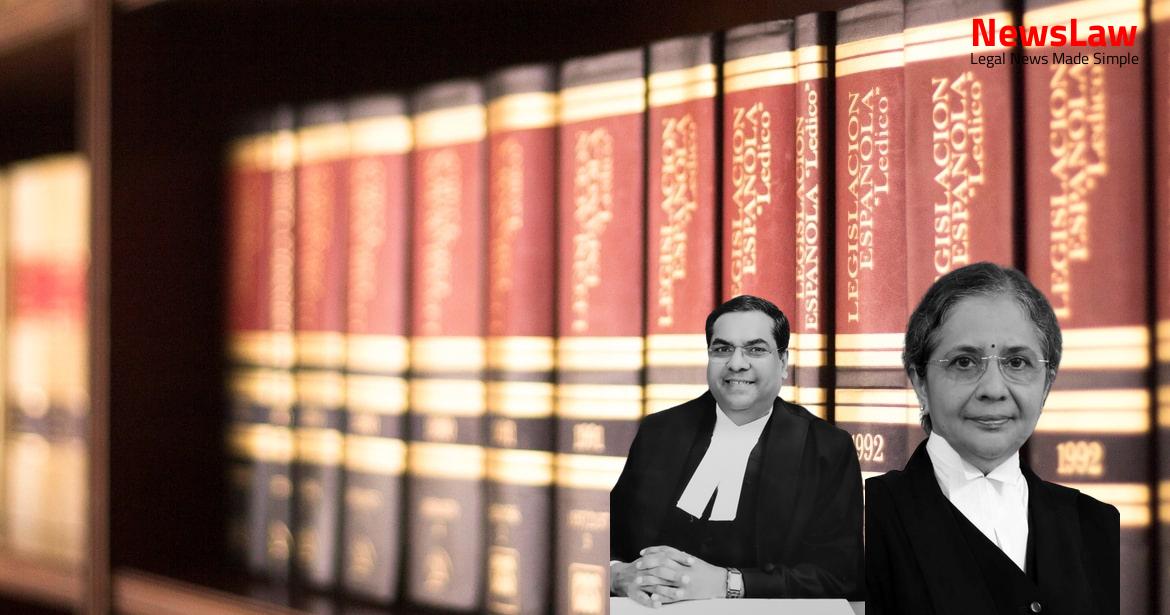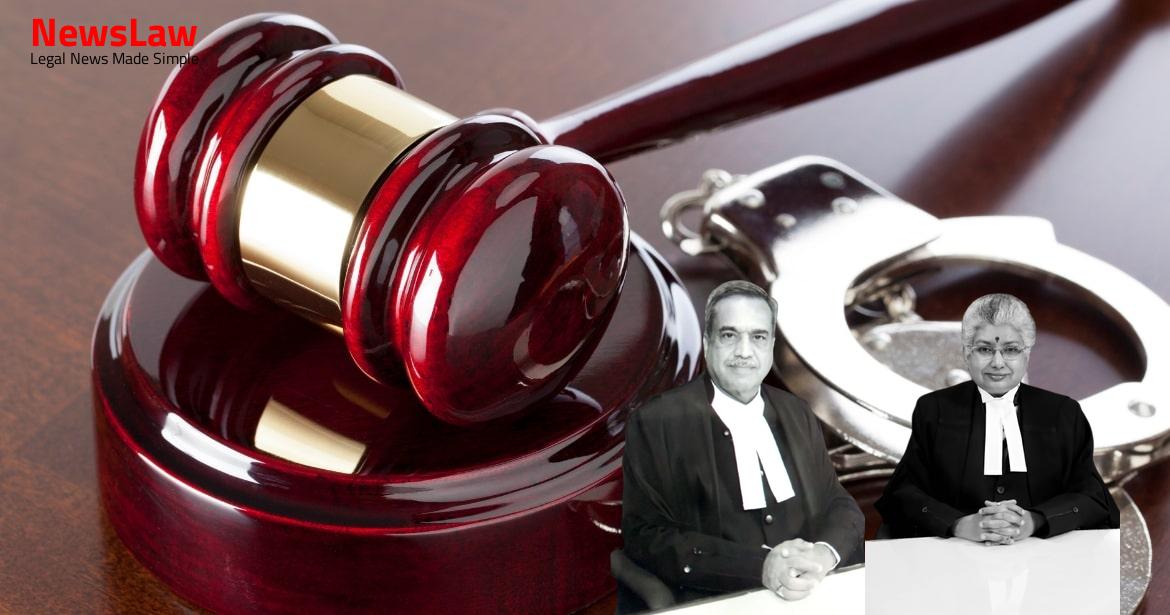Explore the judicial analysis of disciplinary proceedings in paramilitary forces, emphasizing integrity, commitment, and discipline. The court’s scrutiny highlights the importance of fair treatment and adherence to natural justice in service matters. This summary delves into the appropriateness of procedures, the distinction between criminal and disciplinary proceedings, and the discretion of disciplinary authorities in imposing penalties. Stay tuned for a detailed examination of the legal intricacies surrounding this case.
Facts
- Appellant raised a defense that the proceedings were influenced by a superior officer.
- Appellate authority re-evaluated the evidence and found no irregularities in the enquiry proceedings.
- Appellant’s writ petition challenging the enquiry officer’s conduct was dismissed by the High Court.
- The disciplinary authority imposed exemplary punishment of dismissal based on serious misconduct.
- Appellant’s attempts to implicate others were deemed irrelevant as the enquiry focused on his conduct.
- No malice or bias was found in the enquiry officer’s actions.
- Appellant’s reliance on a CISF Rule was deemed obsolete due to an amendment.
- Proper opportunities for cross-examination and clarification were provided to the appellant.
- No material contradictions were found in witness testimonies.
- The disciplinary authority noted the nature of allegations involving corruption within the paramilitary.
- Civil appeal against the High Court’s order rejecting the plea to quash disciplinary proceedings and dismissal order.
- Appellant acknowledged the punishment was not disproportionate if the charges were proven.
- High Court re-examined the evidence on record and found ample proof of the appellant’s involvement in illegal activities.
- The enquiry officer found that GD No 257 entered on 28.02.1999 at 6:05 PM was a false entry made by the appellant’s direction to create a fake loan scenario.
- Sharma was found with unaccounted cash, leading to his seizure and recording in the General Diary at the BPCL compound.
- Witnesses including Head Constable KK Sharma and Head Constable RK Sharma denied the appellant’s alternate version of the events, implicating the appellant instead.
- The appellant was found guilty under all three charges after a thorough examination of evidence and witness statements.
- A self-speaking report was submitted on 17.09.1999 with detailed statements and depositions of witnesses supporting the charges.
- The appellant’s appeal petitions were deemed meritless both factually and legally.
- The investigation revealed the illegal collection of money from BPCL’s contractors by the appellant through his subordinates.
Also Read: Analysis of Suppression of Information in Employment Selection: Legal Perspective
Arguments
- Adequate opportunities were granted and availed by the petitioner.
- The contention of retraction of CW-1’s statement was countered by the respondents’ counsel.
- The severity of dismissal from service was argued to be disproportionate due to remaining years of service.
- The petitioner’s case had been pleaded in multiple venues with concurrent findings of guilt.
- The petitioner maintained his alternate version regarding the recovered sum of Rs 10,780 being a private loan and false charges with oblique motives.
- Deliberate and planned falsifications were highlighted by the respondents.
- Blatant threats made to subordinate officials were emphasized.
- The loan theory presented by the appellant was repeatedly rejected by previous forums.
- The delicate nature of employment in paramilitary forces and breach of trust were underscored.
- The strict punishment of dismissal from service was deemed justified.
Also Read: Analysis of Cheating and Forgery in Passport Case
Analysis
- The judicial analysis focuses on the appropriateness of procedure in disciplinary proceedings, emphasizing the importance of integrity, commitment, discipline, and camaraderie in paramilitary forces.
- The distinction between criminal and disciplinary proceedings is highlighted, noting that different standards of proof apply due to varying stakes and societal implications.
- Judicial review in service matters aims to ensure fairness in treatment, not the conclusion, and does not act as an appellate authority to reappreciate evidence.
- Interference in disciplinary proceedings is warranted only if there is a violation of natural justice, absence of evidence, or if the conclusion reached is unreasonable.
- Disciplinary authorities have discretion in imposing punishments, subject to proportionality and fair play principles.
- Imposition of major penalties like dismissal is justified for grave offenses such as corruption, misappropriation, and gross indiscipline.
- Detailed scrutiny shows that the appellant received a fair trial with opportunities to present evidence, cross-examine witnesses, and have a representation before authorities.
- The punishment of dismissal was deemed proportionate to the proven charges of corruption, fabrication, and intimidation.
- The analysis highlights that the disciplinary authority is the sole judge of facts, with appellate authority having the power to review the decision-making process.
- The scrutiny concludes that the threshold for interference in the proceedings is high, given the detailed evaluation and reasoned orders passed by each authority involved.
- Disciplinary authority entitled to hold delinquent officer guilty if evidence and conclusion support it
- Finding must be based on some evidence
- Judicial review not appellate authority, limited to errors of law or procedural errors
- High Court rightly focused on competence of inquiry officer and adherence to natural justice
- Evidence led, cross-examination conducted, opportunities given for arguments and appeal
- High Court adopted a liberal approach, came to its own independent conclusion of guilt
- Judicial review used to correct manifest errors of law or procedure, bias, or gross unreasonableness of outcome
- Appellant was tasked with weeding out corruption and conducting surprise raids
- No merit found in the appeal
- Appeal dismissed
- Severest penalty should be imposed for acts of intimidation, forgery, and corruption
Also Read: Discrepancy in Date of Birth: Court’s Legal Analysis
Case Title: PRAVIN KUMAR Vs. UNION OF INDIA AND ORS (2020 INSC 542)
Case Number: C.A. No.-006270-006270 / 2012



